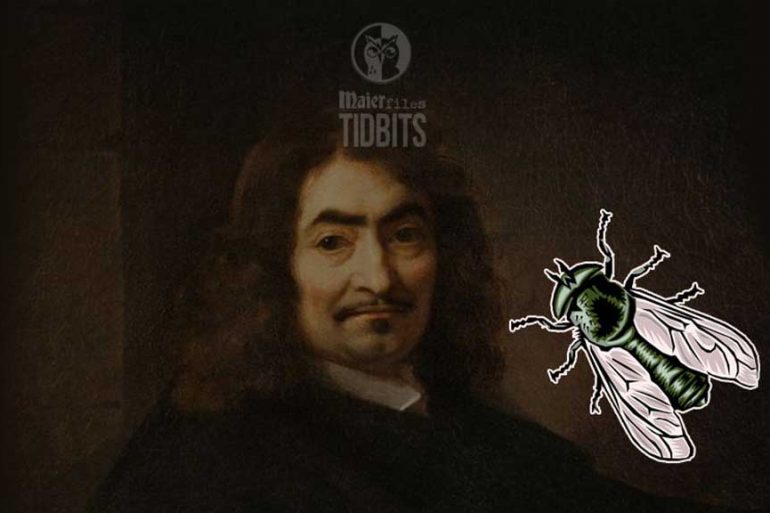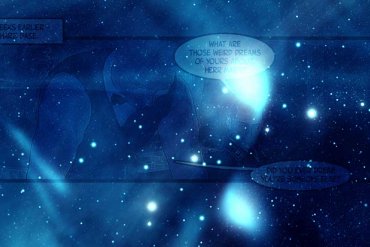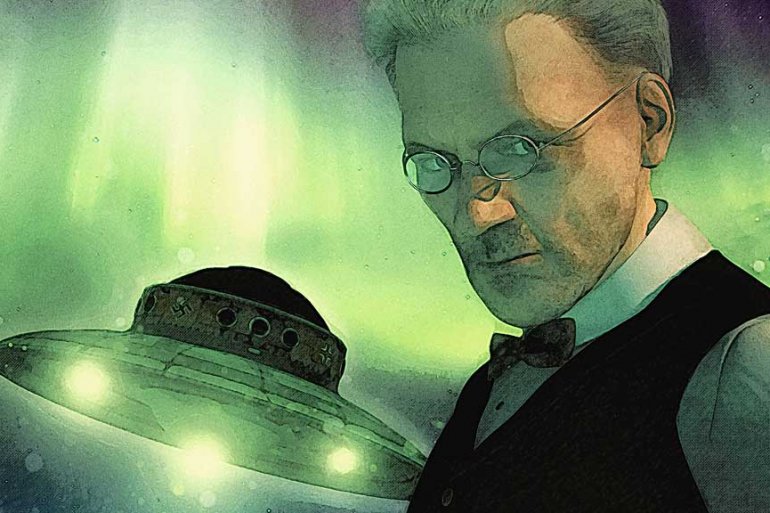In the midst of a world engulfed in the flames of World War II and a tragic civil war in Italy, Julius Evola published his Doctrine of Awakening in 1943. This book, which delves into the depths of Buddhist thought and explores the nature of spirituality and tradition, is a testament to Evola’s ability to transcend the limitations of his time and challenge the modern world’s rejection of traditional values. Evola’s Doctrine of Awakening is...
Philosophy
Everything on philosophy related to Maier files series. Posts and Thoughts examining existence, change, properties, space, time, causality, and possibility.
It was Rodin who stated that “Man never invented anything new, only discovered things.” Although it’s correct to say that certain symbols have been man-made for a particular purpose, it’s just as correct to argue that everything is somehow inspired by the natural world around us, by the forms of nature, plants, animals, the elements. Even a reaction against the fluid forms of nature is usually inspired by a desire to offer an alternative. Occasionally...
Unveiling the Enigmatic Wisdom: Deciphering the Esoteric Meaning of “Sit laus vobis Qui loculum antiqui cordis In fonte aspicitis. O vas nobile Quod non est pollutum Nec devoratum In saltatione antique spelunce. Et quod non est maceratum In vulneribus antiqui perditoris” In the labyrinthine world of ancient texts and cryptic symbols, there exists a riddle (Hildegard von Bingen) that has tantalized the intellect and stirred the soul for generations. It is a passage that reads:...
Meister Eckhart (the thirtheenth-century German mystic) once said, “if you fight your death, you’ll feel the demons tearing away your life, but, if you have the right attitude to death, you will be able to see that the devils are really angels setting your spirit free. In the ancient belief systems, the being who guides the human spirit through the underworld and helps negotiate the way past the guardian demons is the god of planet...
The short book called The Kybalion, published in 1908, is probably the most popular and, probably, most important occult work of the twentieth century. The book is rivaled in significance only by a much longer and very different work, Manly P. Hall’s magisterial encyclopedia arcana, The Secret Teachings of All Ages, which appeared twenty years later. The landscape of mythical and esoteric philosophies that the scholar Hall curated, illustrated, and documented in his volume are, in a sense, distilled...
Otto Maier and his theory about waves, reality and time curves are rooted in the works of the men he looked up to, Leibniz and Descartes. In his “First Meditation” (1641), French philosopher and mathematician René Descartes decided he could not be absolutely sure he wasn’t dreaming. Most people would probably disagree with Descartes. You’re not dreaming right now, and you know it because experiences in dreams are different from those in waking life. A...
Known to some as Sir Thomas More and to others as Saint Thomas More, the author of 1516’s Utopia—and inventor of the word utopia itself—lived from 1478 to 1535. He was a man of great conviction, deep Catholic faith, and remarkable rhetorical skill. It’s not often possible to trace the origins of an entire literary genre (Utopian and Dystopian Works of Literature) back to a single work. Thomas More was, by training, a lawyer and...
In the annals of history, obscured by the veil of secrecy, an enigmatic struggle persists—a clandestine war that transcends the superficial causes and known leaders. Evola, in a thought-provoking essay, delves into this concealed conflict, unraveling a three-dimensional conception of history. This article seeks to unravel the depths of Evola’ discourse, exploring the metaphysical nature of the war, scrutinizing the entities involved, and dissecting the nuanced tactics employed by the covert forces. Understanding the Subterranean...













